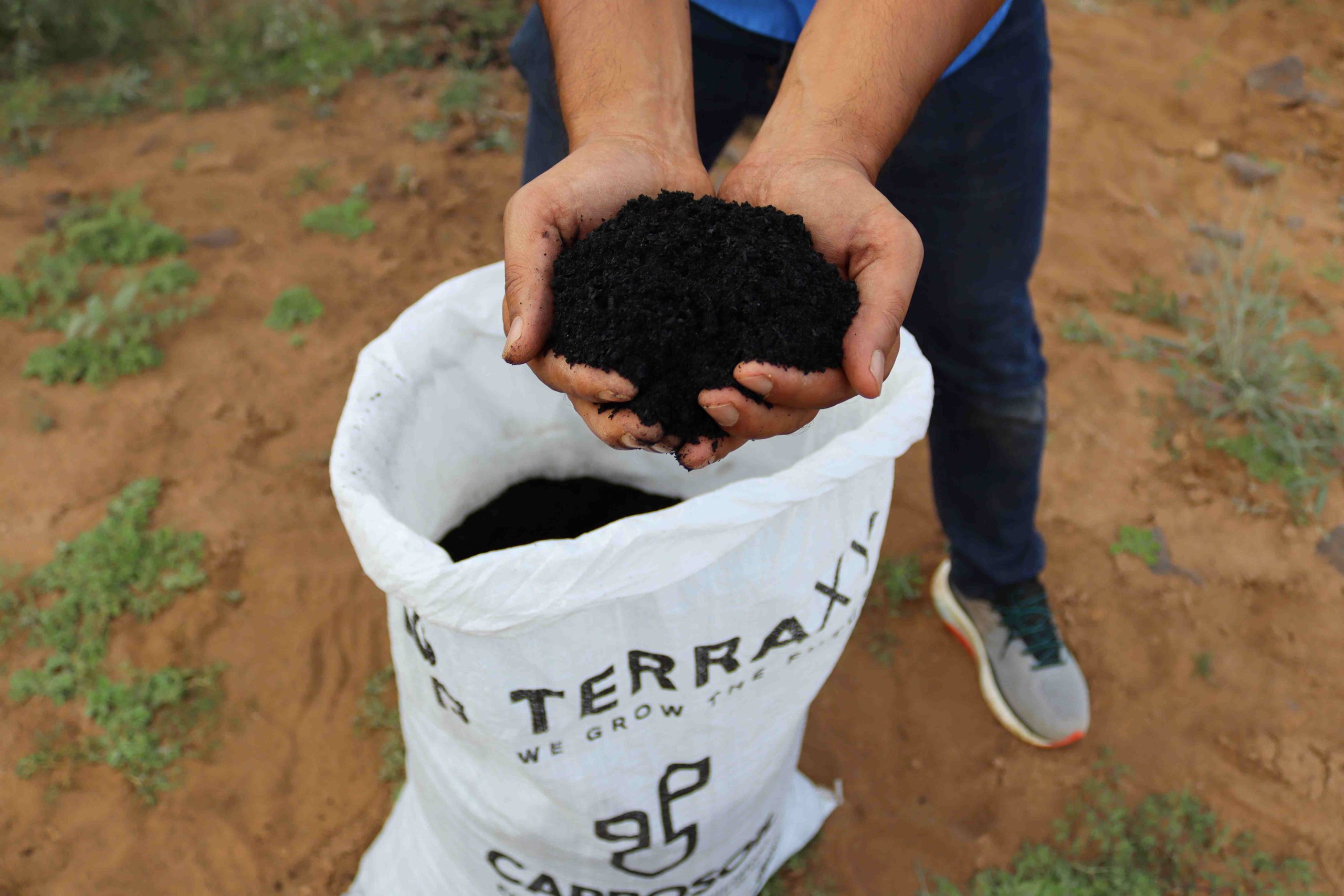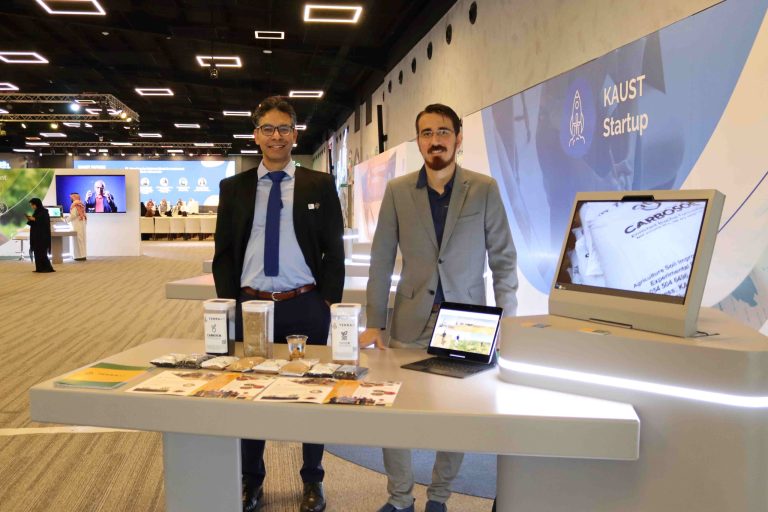São Paulo – Creating two innovative products for Saudi Arabia’s soil took years of research for Matelândia, Brazil-born chemical engineer Adair Gallo Jr., 32. The project he developed in partnership with the supervising professor in his Master’s and PhD studies in Saudi Arabia, Indian engineer Himanshu Mishra, resulted in Terraxy, a startup that sells a biocoal capable of delivering nutrient to soil and a special sand that helps retain water into the soil and prevents it from evaporating in the dry desert climate. The company has expanded to the point of increasing its CarboSoil biocoal output twentyfold. (Pictured above, Gallo., R, and Himanshu.)
Gallo’s story outside Brazil started in 2014 as chemical engineering student from Paraná, Brazil, who went to the United States for an internship through the Brazilian government’s scholarship program Science without Borders. After a few months in a university in Iowa, United States, he moved on to an internship in California where he met Mishra.

The professor would soon move to Saudi Arabia to work at King Abdullah University of Science and Technology, also known as KAUST, and invited the Brazilian student to move to the Arab country with him. Then Gallo returned to Brazil to finish his undergraduate studies and decided to do an internship at KAUST in 2016 by the invitation of Mishra. The campus of the university was in Thuwal, a village along the coast of Red Sea, 80 kilometers (50 mi) from Jeddah.
At KAUST, Gallo was later accepted into a master’s course and a PhD. During his studies, he was called on by Mishra to help a colleague studying hydrophobic materials. So started the development of SandX as an academic project back then. It is a material consisting basically of sand and paraffin, which results in sand-like grains able to repel water. “The new material went wrong in the first tests, because we used brackish water. In later tests, it started going well,” he says.
Gallo compares the effect of SandX to the plastic used to cover farmlands. But unlike that plastic, SandX doesn’t release small plastic particles on earth. Another comparison is with straw in the no-tillage system. Straw protects the crop from the rain, while SandX prevents the soil from losing water.
As the water problem was solved, another one was revealed by research – the soil. Saudi Arabia’s soil has now clay, no organic matter. It’s sandy, alkaline, nutrient-poor, and it has trouble absorbing nutrients and fertilizers made available.

Then the engineer started researching the soil conditions, alternatives to the lack of nutrients, and he found a solution in a dense, tropical-climate rainforest in Brazil – the Amazon, particularly in parts of the of Amazonas, Pará, as well as the Colombian and Peruvian Amazon, too. He found in his studies a type of organic matter resulting from decomposing organic compounds capable of enriching the soil with various nutrients.
This matter is not native from the region and is only found in areas where there is the soil called terra preta [black soil]. According to Gallo’s research, it was introduced there by humans thousands of years ago, seemingly to enrich the Amazonian soil, which is also poor in nutrients as the hot and humid forest causes a rapid degradation of organic matter.
According to research disseminated by Brazil’s agricultural research agency Embrapa and studies published in scientific journals, the terra preta soil, also known as Indian black earth, is rich in minerals like coal, ashes, vegetables, animal remains, straw, and bones, as well as other organic compounds.
“Our innovation was managing to adapt this organic material to the needs of the region’s oil,” says Gallo. This adaptation includes a thermochemical process where the material doesn’t undergo combustion but carbonization. The compound collected is then heated in a closed-off environment. This is the process by which it degrades into biomass and “becomes” the CarboSoil the company sells. “It is a process that makes much sense in the carbon capture process,” says Gallo.
The company still makes a lot of tests with these and other products in development. One of the species used in these is acacia, a plant common in the country because it can thrive even amid the desert climate in Saudi Arabia, which is the target market of the company for now.
Terraxy would only start as a business in early 2022 when research was able to advance with the university’s support and funding. As the products are being well accepted in the local market, particularly the CarboSoil, it is expected that the company will soon “grow on its own”, Gallo says, as a KAUST university “spin-off.”
Terraxy has seven employees, including a Brazilian. Gallo is cofounder and CEO, and Mishra is cofounder and chairman. “In 2021, during my PhD studies, we saw that we were in line with the kingdom’s vision [to diversify the economy] and that [the research products] were commercially viable,” he says.
Gallo and his wife – a Brazilian that develops postdoctoral research at KAUST – occasionally visit Brazil. Two months ago, the family grew upon the birth of their first son. “Now I live the daily life of the company,” says Gallo. “I like my job here. We live in a place that fosters research. The security we found here can’t be found nowhere else, and the quality of life is unrivalled. It’s an unnegotiable reality,” he says.
Translated by Guilherme Miranda




